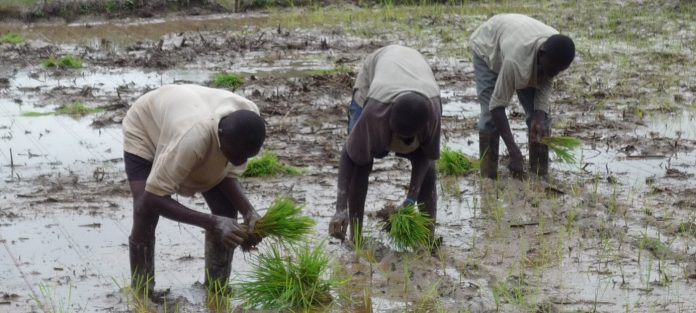Rice is a staple for more than 3.5 billion people, including most of the world’s poor. But it can be a problematic crop to farm. It requires massive amounts of water and the paddies in which it grows emit methane, a potent greenhouse gas.
To tackle such issues, the United Nations Environment Programme (UNEP) has been working with the Shanghai Agrobiological Gene Center to develop strains of rice that are drought resistant and don’t need to be planted in paddies. The research, say, experts, could help bolster food security at a time when COVID-19 is threatening to propel more people into hunger.
The study, which runs from 2017 to 2021, is funded by the Government of China and falls under the China-Africa South-South Cooperation arrangement.
“China has lots of experience growing rice and this collaboration with China is a first,” says UNEP ecosystems expert Levis Kavagi, who has been closely involved with the project.
Researchers have developed and tested over 50 varieties of rice in Ghana, Kenya and Uganda. They evaluated how the grains grow at different elevations and, importantly, how they taste. Read more…



